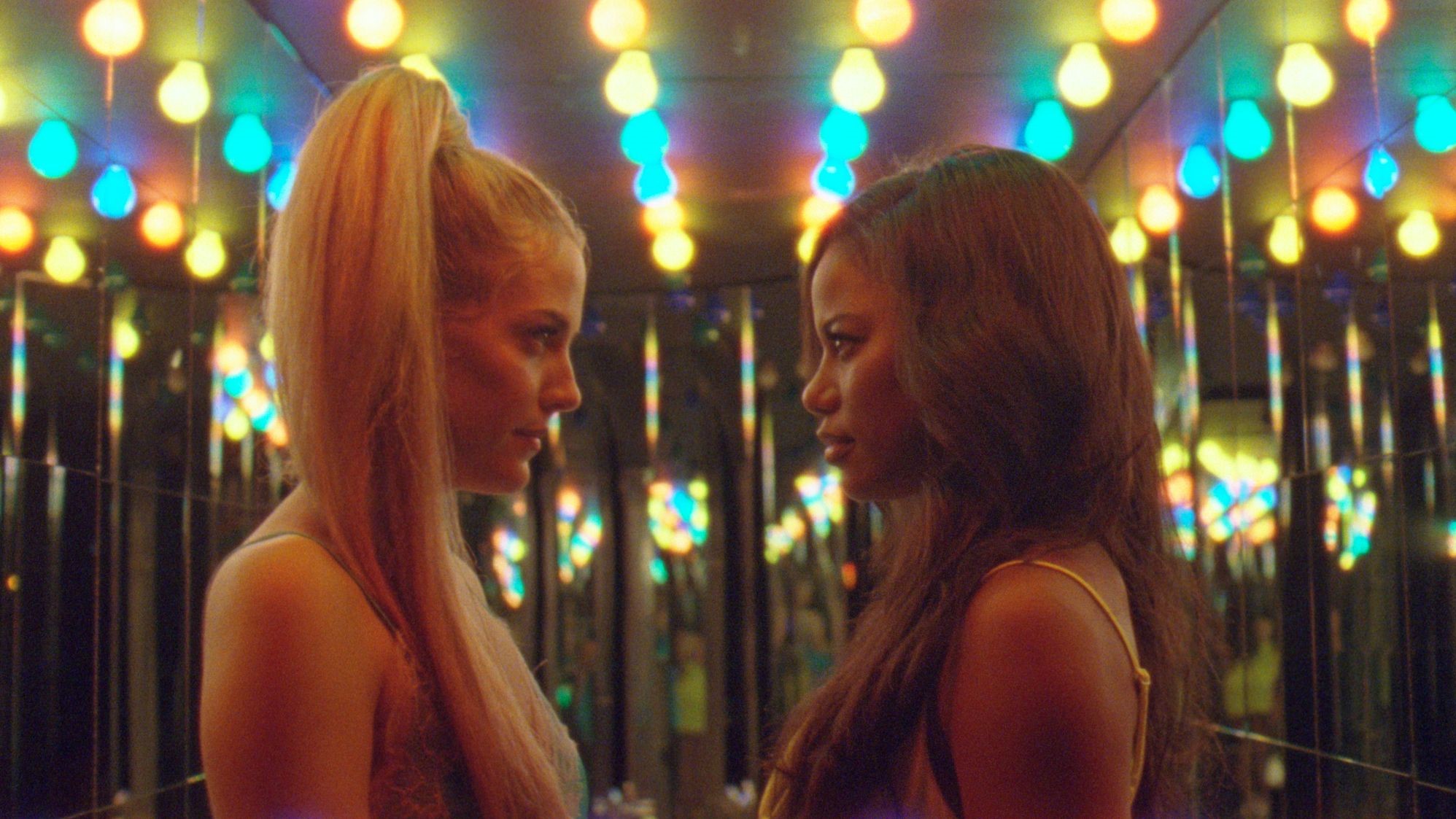What to Watch Verdict
‘Zola’ is a compelling experiment in making cinema from a tweet thread.
Pros
- +
💅🏻Performances across the board are hypnotic.
- +
💅🏻The social media stylism makes the film unlike just about anything out there.
- +
💅🏻The actual events of Zola's wild weekend just get more and more absurd.
Cons
- -
💅🏻The shifts between comedy and trauma make for a bit of a tonal roller coaster.
- -
💅🏻There's a certain nihilistic streak to the narrative that doesn't totally gel.
“Y’all wanna hear a story about why me & this bitch here fell out? It’s kind of long but full of suspense.”
Thus began a now infamous twitter thread written by A’Ziah-Monae “Zola” King, an anecdotal tale of escalating absurdity that at once inspires disbelief and is entirely believable. Adapted to the screen by writer-director Janicza Bravo and co-writer Jeremy O. Harris, Zola seeks to adapt that collection of 148 tweets into a cinematic experience, bringing Zola’s lived experiences to life again for an audience who either missed the viral thread the first time around or wish to see it dramatized in its fully farcical splendor. The result is a willfully uneven interpretation that appears to faithfully adhere to Zola’s recollection of events, though the tonally shaky ground it treads also inspires the chaotic energy the film most thrives upon.
In 2015, Zola (here portrayed by Taylour Paige) meets a woman while waitressing in Detroit, fictionalized for the film with the name Stefani (Riley Keough). The two women quickly bond over the shared hustle of pole dancing, and after a night of stripping together, the two are fast friends. The next day, Stefani invites Zola to a weekend road trip down to Florida, looking to make big money in the Florida strip clubs. Zola agrees, only to find herself in a car with not just Stefani, but a somewhat manic driver whom Zola doesn’t know by name (Colman Domingo is simply credited as “X”), and Stefani’s lovingly loyal yet bumblingly naïve boyfriend Derrek (Nicholas Braun).
The details of how this trip evolves are better experienced than elaborated upon, as the sex and violence of the narrative beats are never obvious in spite of their foundation in reality. The tone tends to shift wildly between comic gold and the horrifically traumatizing, but it keeps itself in check with some excellent performances by the entire principal cast. Braun in particular carries his weight in buffoonery without turning into a cartoon caricature, while Domingo turns his enigmatic character into a loose cannon who could go off at any second. Keough’s turn as Stefani will rightly garner attention for its convoluted cocktail of vulnerability and deceit, which the film rightly never fully untangles. However, Paige is the real star with a quietly anchoring performance that incredulously reacts as the audience should to the madness unfolding around Zola, yet still conveys a bitterness that emphasizes just how much this shit was not fun in the moment.
This is all presented with the flourishes of editing and sound design that call to mind the experience of having a story told through a digital screen. Text message chirps will interrupt dialogue, title cards will tell the time of day with an iPhone’s trademark lock screen font, and Zola’s dissociations with her circumstances will take form like a MacBook screensaver. It’s a very stylized touch that constantly reminds you that this was originally a halting narrative told 140 characters at a time, which is both a strength and a weakness in adapting this story to the screen. On the one hand, the constant reminder of the story’s anecdotal nature allows for more dramatic leeway as the film strings you along from one scene to the next without much regard for traditionally cinematic pacing or any arc more complex than Zola’s growing disillusionment with Stefani.
On the other hand, that stylism wallpapers over some of the story’s inherent nihilism. Zola never elevates to the point of a Coen-esque comedy of errors, but it also doesn’t have much of a discernable point beyond its dare that you believe its events actually happened. This isn’t to suggest that Zola needed to learn something from the trauma she suffered during these portrayed events, nor that a film necessarily needs to lean on any sort of moralism to be entertaining or even poignant. But Zola’s lack of any building climax or conclusory revelation can make the film feel somewhat incomplete.
Yet that still begs the question of whether that pointlessness isn’t part of the point. After all, Zola purports to be a faithful adaptation of a woman’s absurd and terrifying road trip, and there isn’t much more purpose in her sharing it than to unload the emotions she felt in their occurrence. That is, after all, how and why we share our lives on social media: to make ourselves feel less alone in our pain, to relate with others who have had similar experiences, and to maybe share a laugh along the way. Zola’s story is a rather extreme case in how it achieved its viral infamy, but in the end, this is still just a long-form venting session writ large on the screen. It certainly transforms Zola’s mad weekend into a consumable spectacle, and maybe that’s all Zola needs to be to hold meaning, especially for the woman who lived it.
The latest updates, reviews and unmissable series to watch and more!
Zola opens theatrically on June 30, 2021, with PVOD coming soon.
Leigh Monson has been a professional film critic and writer for six years, with bylines at Birth.Movies.Death., SlashFilm and Polygon. Attorney by day, cinephile by night and delicious snack by mid-afternoon, Leigh loves queer cinema and deconstructing genre tropes. If you like insights into recent films and love stupid puns, you can follow them on Twitter.


